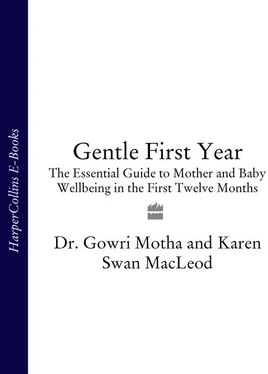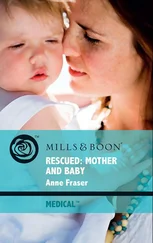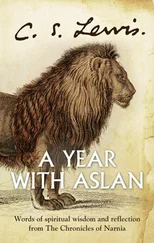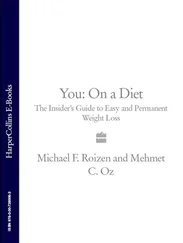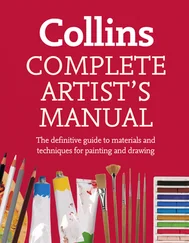Much of my first-year programme is rooted in this ancient postnatal concept. The red tent has been passed down from the nomadic communities of the Jacobi era in the Middle East and still exists in modified form in my native India. The red tent refers literally to the tent to which the women retreated during their menstrual flow. Men were prohibited from entering, and all duties – cooking, cleaning and sexual relations – were suspended until they re-emerged three or four days later.
Why is this relevant? Well, apart from being used for this monthly hiatus, the red tent was also a post-partum retreat, where the new mother and baby rested, recovered and were restored from the birth for 40 days. During this time, the mother did not come out of the tent, but literally fed and slept with the baby, and was massaged and tended to by the other women.
It is still customary in India for the expectant woman to stay at her parents’ home from the 28 thweek (seventh month) of pregnancy, and then for three months after the birth. The mother rests in a specially designated room where she is nourished, nurtured and allowed to heal in much the same way as advocated by the ancients. I grew up seeing at first hand the restorative effects of such intensive post-partum care. It is my wish to prescribe to my mothers a unique, powerful – and empowering – postnatal programme, which integrates these philosophies of the red tent with mainstream medical practices.
creating a cocoon
Of course, for the Western lifestyle, a literal interpretation of the red tent confinement is unrealistic. Many mothers try to discharge themselves from hospital the day after the birth, so convincing them to stay in a room for three months is hardly a viable option. But what is relevant is the idea of ‘cocooning’ yourself, drawing a metaphorical curtain around you which shields you from the demands and pressures of daily life. Life is not normal in those first three months – your sleep is broken, your body may well feel battered and bruised, and you face great challenges as you ease your baby into this noisy, bright world. But recovery and discovery lie before you, and the bond you cultivate with your baby has the transforming power to change both your lives.
tips for moving beyond the red tent
The wisdom behind the confinement of the red tent is to promote rest, recovery and deep bonding. My strongest advice to new mothers is to stay at home as much as possible – certainly for the first three weeks, ideally up to six weeks and, in my dreams, up to three months. But there invariably comes a time when the outside world must become part of your lives again, and although you might have to go out with the pram to do the weekly shopping, it’s also lovely to go for a gentle walk around the park. When you do start to go out together, dab a drop of Australian Bush Flower remedies – such as Angelsworth or Fringed Violet or the easily available Rescue Remedy – on the baby’s fontanelle. This will soothe the baby from the cacophony of outside stimulus and can become a comforting ritual on your first excursions together.
how this book will support you
I feel this book will have succeeded in its purpose if it helps you to receive physical assistance in the early weeks after the birth, and emotional support for the developmental and nurturing issues which come thick and fast in the first year. You will find that the emphasis of this book naturally shifts as the baby grows.
In the first three months, the principal issues are physical. We can, together, help treat and heal any specific trauma you may have suffered from the birth; advocate treatments that fine-tune your body’s transition out of the pregnant state; as well as addressing and resolving your emotional issues surrounding the birth. For your baby, we can explore how to make him or her feel emotionally held and secure; advise physical treatments that eliminate any residual pressures from the birth; boost natural immunity; and offer practical tips to help soothe, calm and settle your baby into deep slumber.
After navigating this intense healing period of the first three months, the emphasis moves to a more emotional plane, showing you and your baby how to enjoy each other. I am opposed to the hot-housing trend, which places undue pressure on early achievement, and firmly believe that babies thrive when nurtured by delighted and committed parents.
It’s not the ‘big’ things that matter – like speaking French or sleeping through the night – but the delicious little gestures that convey love, security and comfort.
To paraphrase John Lennon, ‘Life is what happens to you whilst you’re busy making other plans,’ and there couldn’t be a better sentiment for parenting. It’s not the ‘big’ things that matter – like speaking French or sleeping through the night – but the delicious little gestures that convey love, security and comfort. A cashmere teddy bear may be intended as a big show of love, but a bedtime massage feels just as blissful to your baby; what’s more, it is profoundly bonding and can become a much-loved part of your daily routine. So find the extraordinary in the ordinary, and look for joy – not perfection – in the details.
If having a baby takes away many things – freedom, independence, sleep, seats on the bus – it also gives back so much more: a sense of wonder, bold curiosity, seeing the world with fresh eyes again. A rebirth, perhaps!
PART ONE
Конец ознакомительного фрагмента.
Текст предоставлен ООО «ЛитРес».
Прочитайте эту книгу целиком, купив полную легальную версию на ЛитРес.
Безопасно оплатить книгу можно банковской картой Visa, MasterCard, Maestro, со счета мобильного телефона, с платежного терминала, в салоне МТС или Связной, через PayPal, WebMoney, Яндекс.Деньги, QIWI Кошелек, бонусными картами или другим удобным Вам способом.
